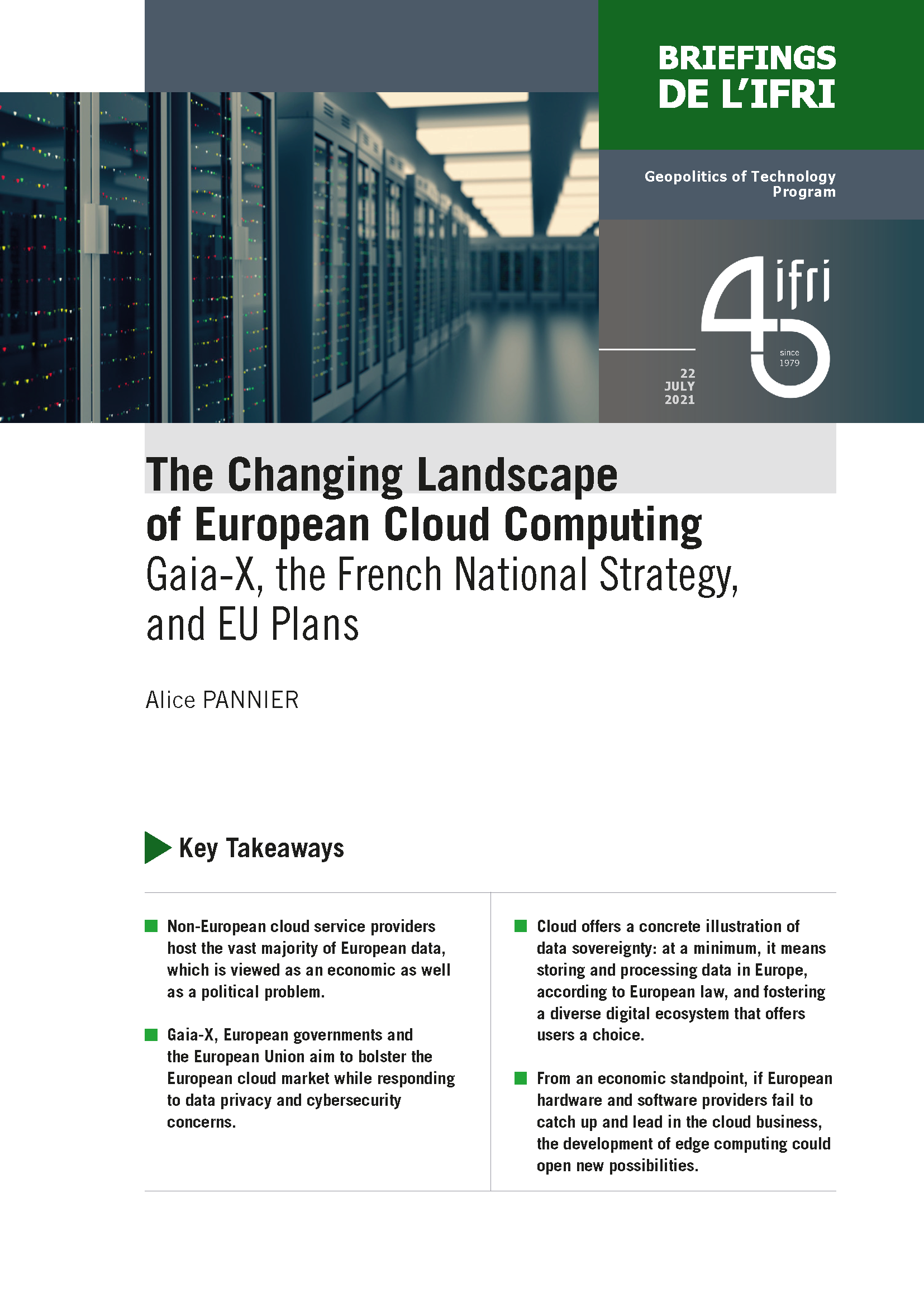The Changing Landscape of European Cloud Computing: Gaia-X, the French National Strategy, and EU Plans

Non-European cloud service providers host the vast majority of European data, which is viewed as an economic as well as a political problem. Gaia-X, European governments and the European Union aim to bolster the European cloud market while responding to data privacy and cybersecurity concerns.

It is estimated that, with the ongoing digital transformation, the global volume of data will be multiplied by five by 2025. Cloud technologies are playing a central role in facilitating this growth.
Today, non-European service providers host 80% of European data. This situation has been called into question over the past few years. For nearly a decade, but especially from 2018 onward, digital sovereignty – in particular, sovereignty over data – has been seen as a necessary response to the privacy and cybersecurity concerns of Europeans, whether individuals, governments, or industry. Europe has sought to build its own governance framework for data and to develop European cloud solutions.
European initiatives in the cloud sector - even if they are not fully coordinated - illustrate in a rather practical fashion what the sometimes-hazy terms of data sovereignty can entail. When it comes to cloud computing, at a minimum it means storing and processing data in Europe, according to European law, and fostering a diverse digital ecosystem that gives customers the choice among various suppliers and data protection regimes.

Available in:
Regions and themes
ISBN / ISSN
Share
Download the full analysis
This page contains only a summary of our work. If you would like to have access to all the information from our research on the subject, you can download the full version in PDF format.
The Changing Landscape of European Cloud Computing: Gaia-X, the French National Strategy, and EU Plans
Related centers and programs
Discover our other research centers and programsFind out more
Discover all our analysesAI, Data Centers and Energy Demand: Reassessing and Exploring the Trends
The information and communication technologies sector today accounts for 9% of global electricity consumption, data centers for 1-1.3%, and artificial intelligence (AI) for less than 0.2%. The growing energy demands of cloud services first, and now AI workloads (10% of today’s data centers electricity demand), have exacerbated this trend. In the future, hyperscale data centers will gain shares amongst all kinds of data centers and AI will probably account for around 20% of data centers electricity demand by 2030.
From nonproliferation to strategic competition: US export controls and China
Technological competition is at the heart of the renewed great-power competition that has characterized relations between the USA and China since the 2010s. The role of technological innovation in the evolution of power relations is already recognized in the literature of international relations. However, developments in US technology policy under the last two administrations raise the reverse question: how does the perception of changing power relations (in this case, Chinese technological catch-up perceived as a threat to US leadership) transform policies granting or denying access to technological innovation?
China’s Mature Node Overcapacity: Unfounded Fears
China is decoupling from, not flooding, the global mature-node semiconductor market. As China increasingly pursues industrial policies encouraging domestic chip production, its own growing chip demand will prevent a direct flood of cheap Chinese chips on foreign shores. However, as Beijing achieves its goal of decreasing the reliance of domestic downstream manufacturers on foreign chips, European and American mature-node semiconductor companies will feel the ripple effects of an increasingly “involuted” Chinese chip ecosystem.
Sat-to-Cell: Towards Universal Connectivity?
Sat-to-Cell is a new type of service that connects smartphones directly to satellites. It has recently enabled innovative applications such as emergency text messaging via satellite. The technology is developing rapidly, and many questions are now being raised about its potential impact.












